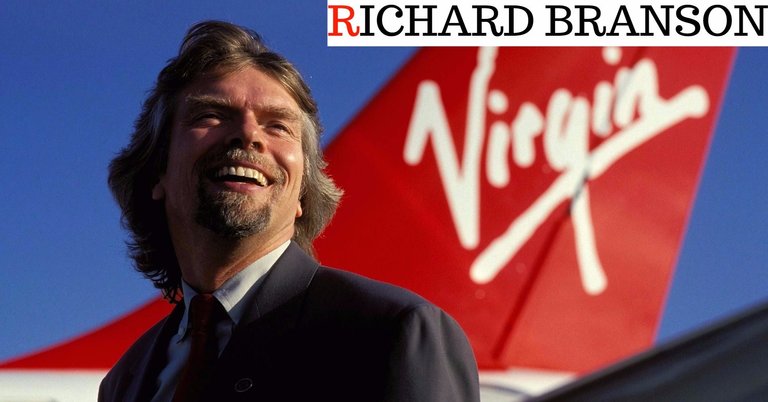Sir Richard Branson

Branson struggled with dyslexia since childhood, nearly failed out of school, then dropped out at sixteen to start a youth-culture magazine called Student. The magazine, he says, “to give a voice to people like me who wanted to protest against the Vietnam War and the establishment.” That began his entrepreneur journey. Immediately after scaling the magazine up at a national level, he turned to new opportunity. He observed that record stores were seriously overpriced. So he started a mail-order record company called it Virgin through which he made enough money to set up record shop and a recording studio.
Expansion came next. Virgin signed a bevy of big acts—the Sex Pistols, Culture Club, the Rolling Stones—and went on an epic decade run that ended with Virgin Music being one of the biggest record companies in the world. Soon after that he saw a new opportunity, Airlines. Branson had long been frustrated by the terrible quality of the airlines. “Why, I kept wondering, couldn’t we create an airline that when you walk on you feel, ‘Wow, this is great.’ ” And that gave birth to Virgin Atlantic. “When we started,” he says, “we had one used 747 and one very successful record company. Everybody at the record company was horrified by what I was doing.”
At one point, in order to save his airline and avoid bankruptcy, he was forced to sell off his majority stake in Virgin Music, netting him the $800 million he needed to keep himself and his airline afloat. A risk that very few would have the courage to take. It paid off and he founded a global empire, diversifying into everything from mobile telecommunications to trains to undersea exploration, wine distribution, fitness centers, health care clinics and, in Virgin Galactic, commercial space flight.
“We’re an unusual company,” he says. “We’re a ‘way-of-life’ brand—but if we weren’t a way-of-life brand, we wouldn’t be here today. Our first business was music stores. Music stores are dead today. But because we’re about a way of life, we experimented and moved into airlines, mobile phones, and a lot of other areas. As a result, we were forced to sell our music stores—and we’re alive today because of it. But if you look back at the headlines, almost every time we moved from one sector into another, the press would always say: ‘Is this one step too far? Will Branson’s balloon burst this time?’ ”
Branson is a fun junkie. He has set world records in balloons. He has set world records in speedboats. He has set world records in outlandishness. He was close to death multiple times. His campaign ideas are always out of the box. "Make bold moves but make sure to have a way out if things go wrong.", is his motto along with the value of being always customer-centric.